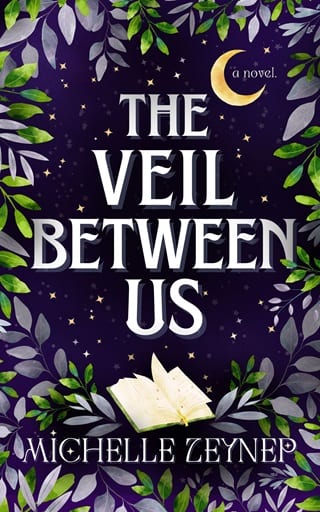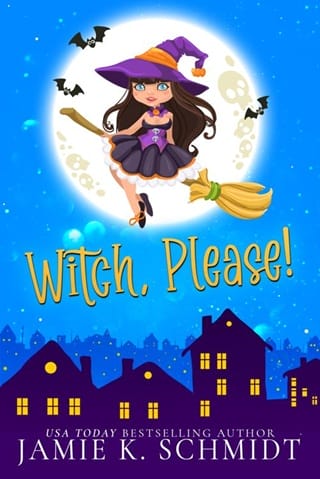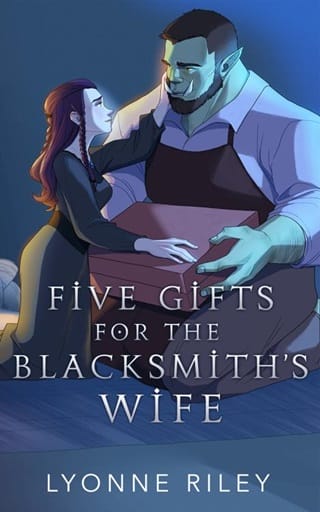22. Epilogue
Epilogue
G reece agrees with Henry.
He’s an old soul in an ancient city. He lights up when we wander through ruins, a young man in a world waiting for him to embrace it.
The way the breeze pushes his hair back shows off his eyes—the same color as the ocean that sprawls out in front of us—and the way the sun hits his hair highlights the reds and golds that have worked their way into it over the past year of living. One quickly discovered and unpleasant side effect of living is that he needs glasses. A gold-rimmed pair perch on his nose now. He laughed when he found out and then had a small crisis of mortality, but now he’s embraced it, adding a few different stylish pairs of glasses to his simple accessorizing .
We are on week seven of what we have officially declared to be our honeymoon: a grand tour spanning six countries and the entire two-and-a-half months of my summer break. We spent an entire year planning the trip. Well, Henry did. I spent most of the year planning for our wedding—or rather, the public wedding ceremony we had almost one year to the date of our first meeting.
We didn’t want to tell my parents that, one August morning just two days after his return, with the dew still on the grass and the mist still clinging to the earth, Henry and I had sworn our lives to each other with just Javier, Caroline, and God there to witness. My mom would have been hurt not to have been invited, even if it was essentially a secret, last-minute elopement, so six months after that day, Henry publicly proposed to me with a promise that he’d love me for all time and an engagement band that perfectly suited the ring I’d been wearing on my wedding finger. Half a year after that, we walked down the aisle of the small church in Oak River, danced under a sprawl of late spring stars, and toasted to a lifetime of love with champagne, our arms entertained.
The only person we told the whole story to was Grandma Lydia. We decided we’d try to convince her of its truth for a few reasons. Primarily, it was because she was seriously contemplating her own mental health after the incident with the little house in the woods disappearing, and it was only kindness to reassure her and prove to her that her mind was still in good working order .
Plus, Henry, with skill exceeding his age but energy matching it, had quickly turned half of the pole barn into a condo “barndominium.” And while I hadn’t quit my teaching job entirely, I did transfer over to teaching for the virtual school so that I could stay with Henry. My parents and aunts and uncles, however, thought I was staying with Grandma Lydia, and obviously she was going to raise some eyebrows at the discrepancy. So, we told her the whole saga of meeting and falling in love and curse-breaking and getting married.
Of course she was skeptical—let’s be honest, who wouldn’t be? Javier had only been convinced by witnessing my half-ghosthood, and now that Henry and I were fully human that was—thankfully—not an option available for convincing anyone. Ultimately, it was Henry himself who convinced her. The black-and-white photos helped. So did an explanation of how it could be possible for Grandma to remember that something existed only to have it disappear without a trace. Still, it was the recall Henry had of Grandma’s own life and family that convinced her. He knew details about her childhood that weren’t on any recording of our family history, recollections of things that happened in the town that weren’t ever printed.
“It’s the simplest explanation,” Henry had argued. “Think about Occam’s razor. What other option could there be?”
“I wouldn’t call believing in ghosts the simplest explanation,” I point out.
“Well it is if you’ve always been convinced that the house across the street from you is haunted,” Grandma Lydia mused .
“Guilty,” Henry said with a grin, a sparkle in his eyes. “What can I say? I just love a good veggie garden.”
Grandma’s eyes lit up. “That garden was haunted!” she gasped. That was the start of what became a close friendship: Grandma was delighted to have someone to speak French with, and she and Henry reminisced about bygone eras as only two people who lived through those times could. Apparently, that fateful morning when Henry and I had first met, Grandma Lydia hadn’t ever called her handyman. The number on the top of the paper was the number I was supposed to call but didn’t after Henry appeared. Grandma Lydia used this little miscommunication to justify bossing him around like he was a grandchild, and he systematically fixed every minor repair that she could possibly think of—all while jokingly complaining about his old bones.
Henry wanted to explore the world and everything in it but didn’t want to move from the land where his family had lived for generations. I wanted to travel too—something I’d always dreamed of but had never known how to take the leap and do. Henry made me want to be brave while also making nothing feel like I needed to be brave: with him as my partner, what could go wrong?
Truthfully, things did go wrong. Our first few months together were blissful but overshadowed by a lingering, gripping fear that one day I’d wake up and Henry would have vanished, pushed over into the other side. And for Henry, his first months of resumed mortality were plagued by unpredictable insomnia. At first, he slept for expansive chunks of time, twelve or fifteen or twenty hours in a day, as if his body was unable to adjust to the physical world. And then, as if a switch was flipped, he wouldn’t be able to sleep for more than three or four hours per day, napping in one- and two-hour chunks before being unable to rest any longer. While he didn’t seem to suffer cognitively from it at all, it worried both of us.
Still, Henry embraced even these issues with a sense of gratitude that was unmatched in any other twenty-five-year-old I’d ever met. “It could be worse,” he would remind me. “I’m alive and not in pain, and together we have a whole life to live.”
Truer words had never been spoken. So, we used up my savings on the pole barn renovation and lived off my income while we figured out how to get Henry documents and a degree, how to transfer stock and bonds and whatever else it was that he had accumulated over the course of decades—which, it turns out, was actually an astounding amount of wealth. Especially considering that, you know, he’d been a ghost.
“It was the dot com boom,” Henry mused over my shoulder one evening as I scrolled through his portfolio, flabbergasted. “It’s easy to take risks when you’re a ghost and don’t need the money anyway. And you know how bored I used to get.”
I’d swallowed my shock and just nodded. “I guess so.”
Henry had just patted my shoulder. “Let’s not count our chickens before they hatch, now. I don’t even have a social security number on file yet.”
It wasn’t until days later that, after waking up from a nightmare featuring Henry’s disappearance, I recalled a detail from one of my early dream-memories of Henry.
“What was it that you buried in the greenhouse of the little house?” I asked the next morning over coffee and cinnamon rolls. (Grandma Lydia had taught him her famous, secret family recipe, agreeing to it because, she acquiesced, he was already family. Still, she’d made him swear an oath of secrecy.)
“Buried?” he asked, frowning. “What are you talking about?”
“In the dreams I used to have of the night of the curse, you’re always burying something in the foundation, under the bricks in the greenhouse.”
Henry frowned, then laughed in disbelief. “I can’t believe I forgot about that,” he said. “It was my portion of my inheritance, and part of my uncle’s too. From my grandfather. He was not very trusting of banks, and so he left me gold bars. My uncle was worried about them, which made me worry, and so I decided to bury them. I suppose they are gone now, along with the house.”
The conversation lingered in my mind for a few days until I was burning with curiosity. “What if they aren’t?” I asked Henry. “What if the house disappeared, but the gold is still there, buried in the earth?”
He raised an eyebrow at the suggestion. “Then we have some digging to do.”
When we’d reached the area where his home had once occupied, he’d instinctively known right where the greenhouse had been, walking with confidence through the forest, across the clearing, and to the corner where he’d once buried his inheritance. It was the first time I had been back since the night the house dissolved around me, and standing there in the daylight, next to a physically manifest Henry, was surreal.
So was the amount of index-card-sized gold bars carefully sealed inside a tin that had been placed inside a now-rotten wooden box. Henry had laughed as I sat, mouth open like a fish at the sight of them. I was so shocked I didn’t know what to think. Let’s just say this: most of a new house, a wedding, and a summer of travel are now fully covered, stocks or no stocks.
Now, we are in country three of six, on our honeymoon. We’d begun our trip with two weeks in France with Grandma Lydia, who’d continued on with another two-week tour designed specifically for retirees. From there, we’d moved to Italy, where I’d drifted through countless museums and galleries, all with Henry’s arm over my neck drawing me close to him so that he could whisper histories into my ear as we wandered through each one. And now: Greece.
Did I already say that Greece and Henry are a match made in heaven?
“Should we move here?” I say, just a hint of teasing in my voice.
“And leave Lydia behind? And what about Spectre? He’s scrappy, but I don’t think he’s cut out to be a Greek kitty.”
Through all improbability, a lanky black cat had appeared at the door of the pole barn the day after we’d broken the curse. Part of my brain refuses to believe it’s the same creature, but the other part can’t deny the similarities—like the uncanny way the cat acts exactly like Spectre. Henry had to install a cat door into the garage section of the pole barn to keep him comfortable, and in return, the black cat had become a vigilant guard against raccoons and mice alike.
“True,” I agree. “Although he’d take the mice by storm.”
I’m wearing a wide-brimmed hat to keep my skin from burning, so when Henry leans in for a kiss, he has to duck. “Do you not want to live in Oak River anymore?”
“I do,” I say, and I mean it. “I just don’t want to hold you back. Do you want to? Are you sure you want to stay in the same place you’ve been for over a century?”
“I do,” Henry reassures me.
“Don’t you want… I don’t know. A fresh view? Action? Adventure?”
“Rency,” Henry says, holding my hand in both of his. He plays with the rings on my finger: past and present and future, a trio of bands filled with promises spanning decades. “I do want that. But I have it already.”
“You do?”
He nods, brings my hand up to his lips for a kiss. “Yes. I do. Because now that I’m flesh and blood again, I can truly live. And life with you will be my greatest adventure yet.”
And so, it was.
And it will be.
Forever and ever, ’til death do us part.
 Fullepub
Fullepub 



